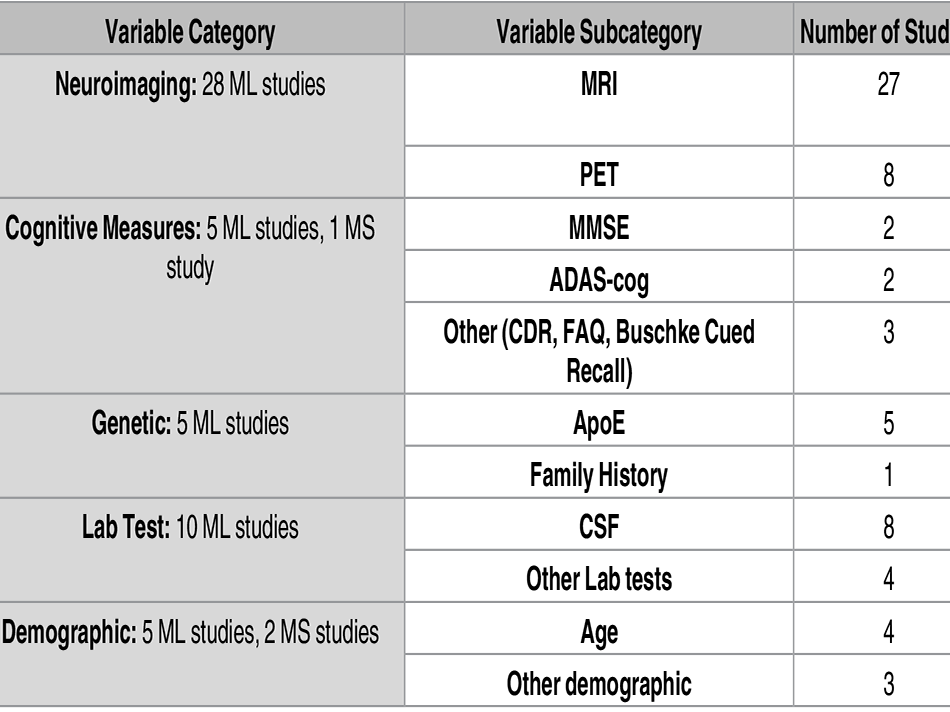
Machine learning and microsimulation techniques on the prognosis of dementia: A systematic literature review
- Post by: Peter Anderberg
- 14 June, 2017
- No Comment
ABSTRACT
Background
Dementia is a complex disorder characterized by poor outcomes for the patients and high costs of care. After decades of research little is known about its mechanisms. Having prognostic estimates about dementia can help researchers, patients and public entities in dealing with this disorder. Thus, health data, machine learning and microsimulation techniques could be employed in developing prognostic estimates for dementia.
Objective
The goal of this paper is to present evidence on the state of the art of studies investigating and the prognosis of dementia using machine learning and microsimulation techniques.
Method
To achieve our goal we carried out a systematic literature review, in which three large databases—Pubmed, Socups and Web of Science were searched to select studies that employed machine learning or microsimulation techniques for the prognosis of dementia. A single backward snowballing was done to identify further studies. A quality checklist was also employed to assess the quality of the evidence presented by the selected studies, and low quality studies were removed. Finally, data from the final set of studies were extracted in summary tables.
Results
In total 37 papers were included. The data summary results showed that the current research is focused on the investigation of the patients with mild cognitive impairment that will evolve to Alzheimer’s disease, using machine learning techniques. Microsimulation studies were concerned with cost estimation and had a populational focus. Neuroimaging was the most commonly used variable.
Conclusions
Prediction of conversion from MCI to AD is the dominant theme in the selected studies. Most studies used ML techniques on Neuroimaging data. Only a few data sources have been recruited by most studies and the ADNI database is the one most commonly used. Only two studies have investigated the prediction of epidemiological aspects of Dementia using either ML or MS techniques. Finally, care should be taken when interpreting the reported accuracy of ML techniques, given studies’ different contexts.
KEYWORDS
Cognitive impairment, Machine learning,nSupport vector machines, Machine learning algorithms, Database searching
